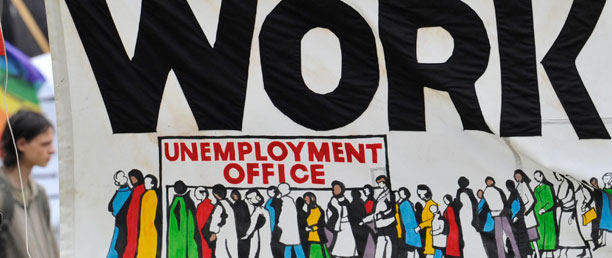Cameron ‘betraying’ young people on jobs – Miliband
Labour Leader Ed Miliband accuses the Prime Minister of “betraying” young people, as new figures show youth unemployment rising to almost a million.
At Prime Minister’s Questions in the Commons, Mr Miliband said “a whole generation of young people” was affected by a lack of jobs.
Official figures released today show that unemployment rose by 44,000 to just under 2.5 million in the final three months of 2010 – a jobless rate of 7.9 per cent.
Youth unemployment has risen by 66,000 to 965,000 – the highest figure since records began in 1992 – with more than one in five 16 to 24-year-olds out of work.
Inflation has also risen to 4 per cent, and today Bank of England Governor Mervyn King said the Bank’s growth forecast was being downgraded because of weaker output than expected at the end of last year.
David Cameron said: “Of course today’s unemployment figures are a matter of great regret, and it’s a great regret particularly in terms of higher youth unemployment.
“Youth unemployment has been a problem in this country for well over a decade, in good years and in bad. The level of youth unemployment went up by 40 per cent under the last government, an extra 270,000 young people unemployed.”

Mr Miliband said: “We know his view of social mobility is auctioning off a few City internships at the Conservative Party ball but, frankly, he is going to have to do better than that.
“The truth is, he is betraying a whole generation of young people. He is trebling tuition fees, he is abolishing the Education Maintenance Allowance and he is abolishing the Future Jobs Fund.”
Mr Cameron praised the Government’s Work Programme as “the biggest back-to-work scheme this country has seen since the 1930s”.
FactCheck: Crunching Cameron's jobless youth statistics
‘Perfect storm’
Dr John Philpott, chief economic adviser at the Chartered Institute of Personnel and Development, said: “A weakening jobs market, muted economic growth, ultra-tight fiscal policy, plus well-above-target price inflation and the greater prospect of an interest rate hike sometime later this year provide all the ingredients for a perfect storm to hit the UK economy.”
Graeme Leach, chief economist at the Institute of Directors, said: “Unemployment is up and employment is down. This really is the feel bad recovery. Thankfully there is no evidence of a wage-price spiral developing, as wage pressure appears to be falling, not rising.”
The British Chambers of Commerce are predicting that unemployment will rise by 100,000 over the next year to around 2.6 million. David Kern, chief economist, said: “With private sector employment likely to decline, it is critical that every effort is made to enable businesses to create jobs.”